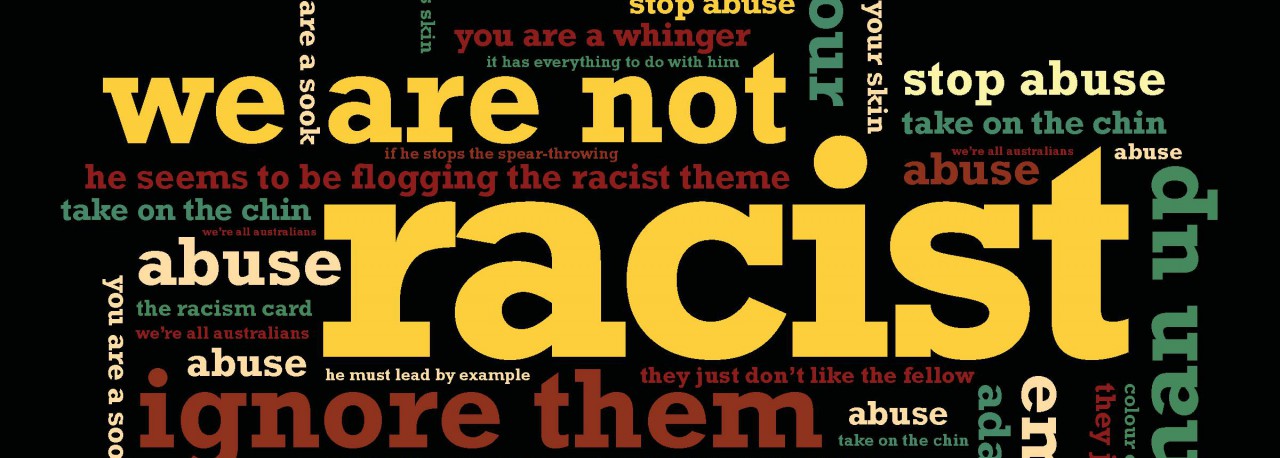For this post, I asked for the help of an ex-high school teacher of mine, Philip Hall, who has lived in the remote community of Borroloola in Australia’s Northern Territory for a number of years as a teacher. In asking him about his experiences in working with Indigenous communities and if there were any stories he could share about racism, I did not expect the story I got, but it’s one that shows a systemic racism so ingrained yet totally ignored that it brings a whole new understanding to the issue of telling someone they “shouldn’t play the race card”. This is because it doesn’t argue with racist people, it doesn’t contradict them, try to set them right or explain how wrong they are. What it does do is give an insight into the lives of remote Indigenous communities that many people, including myself, have a complete lack of understanding of because quite simply, we have not lived that experience, and probably never will. Here is an excerpt:
“More than a dozen young adults have passed away by suicide or violent death during my time of residency in Borroloola. Substance abuse is rife – especially of tobacco, ganja and alcohol – and too many young people have criminal convictions for petty violence and property misdemeanors. But the town has poor access to mental health care with specialist services usually provided in Katherine (700 km distance) or Darwin (960 km). Borroloola is ‘out of sight and out of mind’: a place where immense community need is too often met with disengaged and inconsistent government service. Borroloola’s health clinic, I am told by indigenous family, is infamous for making indigenous clients wait while non-indigenous people are prioritised.”

The closest mental health clinic is 700km away. SEVEN HUNDRED KILOMETRES. It is straight facts such as these that illustrate the inarguable disadvantage experienced by remote, indigenous communities that make telling people to “get over it” and “stop being a sook” when it comes to racism, inexcusable. The “Out of site and out of mind” mindset is something that has been prevalent in the media over the past few months, and something people obviously wanted to maintain with high profile people such as Adam Goodes and Miranda Tapsell making stands against racism and expressing the desire to help indigenous communities, and being absolutely shut down and abused for it. These people, would rather have the issues not talked about and therefore dismiss them as something other than racism because it is the easiest way to deal with it. And that brings me to the next excerpt from the essay:
“Borroloola is located on Yanyuwa Country. The town is also shared with members of the Garawa, Mara and Gudanji peoples, now, after more than a hundred years of massacre and dispossession. Borroloola’s indigenous people have been forced to hold much of their shocking frontier contact history locked away inside of themselves.”
Again, a demonstration of just how difficult it can be to understand the depth of another person’s cultural heritage. Dealing with a heritage that is surrounded by massacre and dispossession and having to lock this away inside is something the white population of Australia will never have to deal with. So telling someone they should be grateful for the opportunities Australia has given them and to stop complaining about racism (which is a sentiment repeated over and over in the Adam Goodes debate), again, is something so unfair and something that shows such a lack of empathy and understanding of other cultures that means it is inherently racist. Many people, myself included, do not think of these problems when we are talking about racist issues because it is so far removed from our lives that it doesn’t seem relevant. But maybe, when we are entering into discussions about race, we should start considering the history, the things people have had to deal with and the things they still deal with today, before we dismiss it and call it irrelevant, attention seeking, being a sook or one of the many things it has been called. These stories show that racism is not a black and white issue but about culture and history and the ignoring of the past that makes people like Adam Goodes need to remind us of it. The flat rejection of it by so many shows that someone needs to.
P.F.
Essay: http://cordite.org.au/essays/my-intervention-in-cowdy/
Phillip Hall is an essayist and poet working as an editor with Verity La’s ‘Emerging Indigenous Writers’ Project’. In 2014 he published Sweetened in Coals. He is currently working on a collection of place-based poetry called Fume. This project celebrates, and responds to, Indigenous Culture in the Northern Territory’s Gulf of Carpentaria. In November 2015 Black Rune Press will publish a chapbook of Phillip’s collaborative work with Diwurruwurru: The Borroloola Poetry Club.


